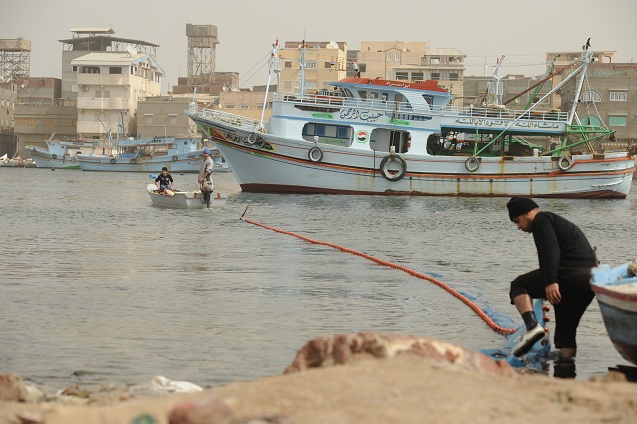GAZA: Nearly four months since the end of hostilities in Gaza, it is increasingly apparent that massive needs are going unmet, and reconstruction is stalled. Donors have pledged money for humanitarian aid and for Gaza reconstruction, but on the ground the flow of goods compared to the needs is wholly inadequate, and reconstruction is in practice impossible.
Roughly 75 percent of the 1.5 million residents of Gaza require some kind of assistance. But even the most essential imports are subject to intense limitations by Israeli authorities. Only food and a few other items are allowed in. Reconstruction materials and essential spare parts of all kinds are essentially banned. An Israeli ban on exports, apart from a few lorry-loads of flowers, has exacerbated the situation by further crushing Gaza’s job-creating industries.
I saw the suffering of the civilian population this situation has created in Gaza first hand in February 2008 and again when I visited a few days after the military action ended in January 2009. The ruin of hundreds of thousands of lives and livelihoods appears to be seen by Israel as the collective price that Gaza’s civilians must pay for the acts of a few among them.
While Israel has primary responsibility for this terrible crisis of human dignity in Gaza, Hamas must also shoulder its part of the blame because of the indiscriminate and pointless rocket attacks it committed and allowed to be committed from Gaza for so long. Hamas was well aware of the possible consequences of these acts, and its almost three year silence over the fate of Israeli soldier Gilad Shalit, but went ahead anyway. Their claim to have the interests of the Palestinian people at heart was thereby weakened.
The reality on the ground is that Gazans, like vulnerable people the world over, would far sooner buy what they want than rely on charity. But as joblessness has spiked, many families have no source of income, heralding the predictable fall of almost an entire society into aid dependency. Today, the number of people requiring food aid has risen to an unprecedented level, even though food is available on the markets. Due to the damage to the water and sanitation network, much of which cannot be repaired in present circumstances, access to and quality of water have deteriorated, resulting in a rise in waterborne diseases and a need for more water trucking.
For the humanitarian situation in the Gaza Strip to improve, life saving assistance and basic reconstruction needs must be decoupled from the security and political agendas. If the Israeli-Palestinian peace that has been sought for over 60 years, and more recently inter-Palestinian reconciliation, remain preconditions for improving living conditions, the Gaza Strip risks being dependent on handouts for years to come, with all that implies for the Palestinians in Gaza and their future attitudes.
A good starting point would reopen the border crossings to all essential humanitarian and reconstruction goods. This should happen not because Hamas wants it or might benefit from it or because certain political benchmarks have been reached, but simply because Gazans desperately need it. The relief workers currently applying for authorizations to work in Gaza must also be recognized and respected by Hamas and Israel as independent and autonomous actors. Humanitarian aid is neutral and impartial, and Gaza’s donors should reinforce that message at every opportunity.
These are preliminary steps that would bring to daily life in Gaza at least a modicum of dignity, while doing nothing to advance or obstruct the political goals of either side.
In Gaza today, humanity has taken a back seat to politics, and a measly trickle of items has become the most the world can offer civilians trapped by a political stalemate not of their making. The work of rebuilding the infrastructure ruined during the invasion and by almost two years of closure, and providing for Gaza’s most vulnerable – the children and aged – must be elevated from an afterthought to a priority.
Protection, food, water, healthcare and shelter are basic human needs, not bargaining chips. It is high time that fact is recognized by all the parties responsible for the immense suffering in Gaza today.
John Holmesis the United Nations Under-Secretary-General for Humanitarian Affairs and Emergency Relief Coordinator.

